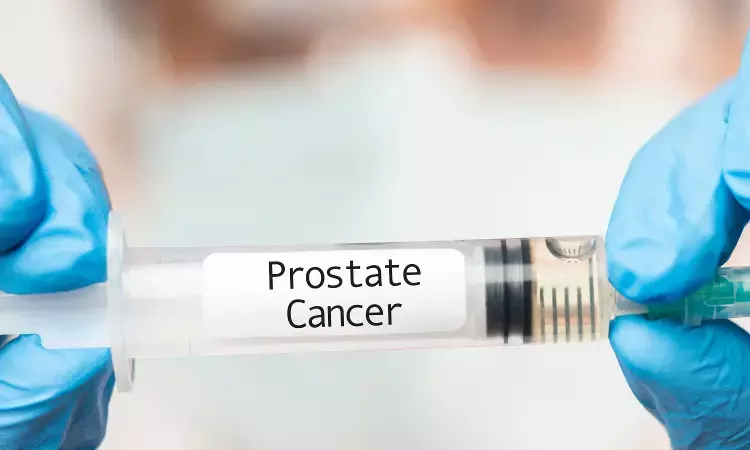- Home
- Medical news & Guidelines
- Anesthesiology
- Cardiology and CTVS
- Critical Care
- Dentistry
- Dermatology
- Diabetes and Endocrinology
- ENT
- Gastroenterology
- Medicine
- Nephrology
- Neurology
- Obstretics-Gynaecology
- Oncology
- Ophthalmology
- Orthopaedics
- Pediatrics-Neonatology
- Psychiatry
- Pulmonology
- Radiology
- Surgery
- Urology
- Laboratory Medicine
- Diet
- Nursing
- Paramedical
- Physiotherapy
- Health news
- Fact Check
- Bone Health Fact Check
- Brain Health Fact Check
- Cancer Related Fact Check
- Child Care Fact Check
- Dental and oral health fact check
- Diabetes and metabolic health fact check
- Diet and Nutrition Fact Check
- Eye and ENT Care Fact Check
- Fitness fact check
- Gut health fact check
- Heart health fact check
- Kidney health fact check
- Medical education fact check
- Men's health fact check
- Respiratory fact check
- Skin and hair care fact check
- Vaccine and Immunization fact check
- Women's health fact check
- AYUSH
- State News
- Andaman and Nicobar Islands
- Andhra Pradesh
- Arunachal Pradesh
- Assam
- Bihar
- Chandigarh
- Chattisgarh
- Dadra and Nagar Haveli
- Daman and Diu
- Delhi
- Goa
- Gujarat
- Haryana
- Himachal Pradesh
- Jammu & Kashmir
- Jharkhand
- Karnataka
- Kerala
- Ladakh
- Lakshadweep
- Madhya Pradesh
- Maharashtra
- Manipur
- Meghalaya
- Mizoram
- Nagaland
- Odisha
- Puducherry
- Punjab
- Rajasthan
- Sikkim
- Tamil Nadu
- Telangana
- Tripura
- Uttar Pradesh
- Uttrakhand
- West Bengal
- Medical Education
- Industry
Common prostate cancer medications may be less safe than previously thought

Men taking either of the two most common oral medications for advanced prostate cancer who had also undergone hormone therapy to treat their disease were at higher risk of serious metabolic or cardiovascular issues than patients who were only receiving hormone therapy, Michigan Medicine researchers found.
Patients taking abiraterone had 1.77 times the risk of being admitted to the emergency room or the hospital due to diabetes, hypertension or heart disease compared to those who were only on hormone therapy. Those receiving enzalutamide were at 1.22 times the risk of these issues.
Compared to patients not receiving abiraterone, those taking abiraterone were also more likely to need an outpatient visit with their physician related to at least one of these health conditions. That was not the case if the man was taking enzalutamide.
Abiraterone and enzalutamide were both found to be relatively safe in clinical trials, but concerns that the population of patients who participated in the trials was different than those in real-life settings prompted the researchers to take another look at the effects of the drugs.
For instance, this research exclusively analyzed patients with Medicare health insurance, and the majority of men studied were significantly older than those in the drugs' clinical trials.
"Patients enrolled in clinical trials tend to be highly selected and often times do not reflect the patient population in day-to-day practice," said Lillian Y. Lai, M.D., M.S., a National Institutes of Health T32 Urologic Oncology Research Fellow at Michigan Medicine and the first author of the study. "Trial participants also undergo stringent safety evaluations that some of our patients do not have access to. By studying adverse events in real-life settings, we can better understand the risks of these life-prolonging cancer treatments and help clinicians and patients make informed decisions regarding treatment."
Since metabolic and cardiovascular conditions tend to be under the purview of primary care providers, Lai and her fellow authors recommend team-based care that involves PCPs for patients with advanced prostate cancer as a way to manage these higher risks.
"With continued expansion of the indications for abiraterone and enzalutamide to earlier stages of the disease, increasing numbers of men will be receiving these therapies for longer periods of time," Lai said. "This will potentially amplify the scope of men affected and increase the magnitude of the risks of adverse events, making careful attention to management of these issues crucial."
To read the full article, click on the following link:
Dr Kamal Kant Kohli-MBBS, DTCD- a chest specialist with more than 30 years of practice and a flair for writing clinical articles, Dr Kamal Kant Kohli joined Medical Dialogues as a Chief Editor of Medical News. Besides writing articles, as an editor, he proofreads and verifies all the medical content published on Medical Dialogues including those coming from journals, studies,medical conferences,guidelines etc. Email: drkohli@medicaldialogues.in. Contact no. 011-43720751


